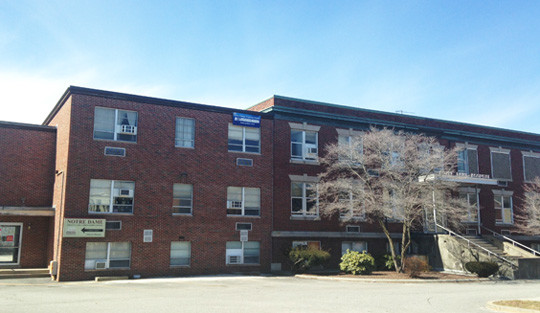Giving birth in Central Falls to a new model of community health care
Prototype of one of Rhode Island’s first neighborhood health station begins to take shape
In other words, most of the doctors that were recognized were those who were embedded in the commercially insured, high-end, high-cost health care delivery system – as voted by their peers.
Community health centers deliver high-quality, affordable, accessible care to more than one-fifth of the state of Rhode Island, yet they, like many of their patients and many of their physicians, are invisible in public perception of the health care delivery system. The well-read feature in Rhode Island Monthly paints an image of a coordinated health care delivery system, which is misleading. Some of the best care coordination and integrated delivery are managed by community health centers, with high quality outcomes.
CENTRAL FALLS – In quiet fashion, on April 22, the R.I. Department of Health approved all the necessary transition documents, allowing Blackstone Valley Community Health Care to begin operations on April 25 at the former Notre Dame facility, previously owned and operated by Memorial Hospital of Rhode Island.
The new express care/walk-in primary care facility has been “very busy” since then, according to Ray Lavoie, executive director of the Blackstone Valley Community Health Care center.
A week later, on May 2, Blackstone Valley re-opened its former facility at 42 Park Place, going through a similar approval process with the R.I. Department of Health. The community health center moved its OB/GYN practice to that location and began providing services at that location as of May 2.
The next anticipated move by Blackstone Valley will be to move its Vision Department, currently located at the 210 Main St. dental facility in Pawtucket, to 42 Park Place in about two months, following renovations.
If all goes well, the location of the former Notre Dame facility will emerge as the prototype for the first Neighborhood Health Station in Rhode Island, featuring a new 37,000 square foot facility, a one-stop community center providing primary care, express walk-in care, occupational therapy, physical therapy, dental care and behavioral health care, all wrapped up and connected through the use of “the best health IT” available, according to Lavoie.
Big boost
On May 4, Blackstone Valley received a big boost for its plans in Central Falls, with a $1 million “Health Infrastructure Investment Program” award, part of more than $260 million in federal funds awarded to 290 health centers in 45 states by the U.S. Department of Health and Human Services.
The money is targeted to enable community health centers to increase patient capacity and to provide additional comprehensive primary and preventive health services to medically underserved populations.
[Providence Community Health Centers received $988,180 and CCAP received $1 million as part of these grants.]
Construction of the revamped facility, under an optimistic schedule, would break ground in September and officially open in December of 2017, according to Lavoie.
A community approach
In the meantime, stakeholder conversations continue on a regular basis in Central Falls on how best to design and to knit together health care services based upon the needs of the community, rather than the needs of the providers. [See link to ConvergenceRI article below.]
Participants in the ongoing conversations include: the City of Central Falls, Blackstone Valley Community Health Care, Memorial Hospital of Rhode Island, the YMCA of Pawtucket, Progreso Latino, Central Falls Housing, Anchor Recovery, several home visiting agencies, visiting nurses, and the R.I. Council of Churches.
The inclusion of the city’s emergency responders in those conversations have helped to focus discussions about the potential of reorganizing those services and connecting them to primary care for the first time, according to Dr. Michael Fine, the former director of the R.I. Department of Health, who is currently working part-time with Blackstone Valley Community Health Care.
“Emergency medical services, or EMS, are not functionally connected to the health are system,” Fine explained in an earlier interview with ConvergenceRI. “They operate as a vacuum, sucking people up from the community and dumping them at hospitals.”
The goal is to develop a solution where primary care physicians and emergency responders can make decisions together, Fine said.
New way of thinking about health care
The approach being taking by the creation of the Neighborhood Health Station in Central Falls requires a new way of thinking about health care delivery, according to Lavoie.
It requires breaking down existing silos, Lavoie continued. “To be successful at improving population health in the community, and to accomplish this at a lower cost to the health care system, clinical information must be readily available to all treating clinicians in the community,” Lavoie told ConvergenceRI in an earlier interview.
To break down the silos, Blackstone Valley has set out to build a community health record that will be for clinicians, owned and operated by clinicians, for the benefit of all members of the community, according to Lavoie. The Rhode Island Foundation is providing financial support to help launch this initiative through its Fund for a Healthy Rhode Island.






